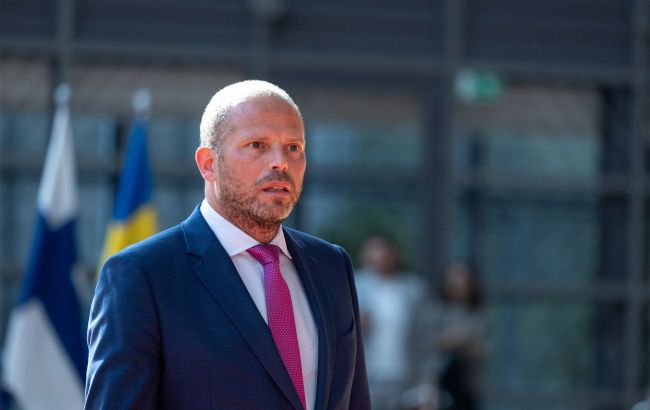Belgian defense minister confirms F-16 jets for Ukraine, outlines delivery timeline
 Belgian Defense Minister Theo Francken (photo: Getty Images)
Belgian Defense Minister Theo Francken (photo: Getty Images)
Belgian Defense Minister Theo Francken confirmed that Ukraine will receive all the F-16 fighter jets his country has promised. He emphasized that the transfer will take place once pilot training is complete and technical procedures are finalized, speaking during a press conference at NATO headquarters.
Francken responded to a question about the delivery of the promised F-16s to Ukraine amid Belgium's acquisition of a different aircraft model — the F-35 fighter jets.
"So the F-16 will come to your country, but that's not because we have verified that they can be used immediately. They have to train, and that takes a month. So it's not immediately when they arrive, but immediately they go to Ukraine. We will keep our promises. All the F-16s will come to your country. There's no discussion about that," said the Belgian defense minister.
Belgium's supply of F-16s to Ukraine
In 2023, Belgium's Ministry of Defense announced plans to transfer part of its F-16 fighter jets to Ukraine in 2025.
The exact number of aircraft was not specified. However, it was noted that this would become possible after Belgium expanded its fleet of modern F-35s, which are gradually replacing the F-16s in the Belgian Air Force.
This process is now entering a practical phase, and the arrival of F-35s in Belgium effectively paves the way for a faster transfer of F-16s to the Ukrainian military.
NATO ministers in Brussels on October 15
Defense ministers from NATO member states gathered in Brussels on October 15 to discuss key security measures amid ongoing Russian provocations. Following the NATO ministerial meeting, sessions of the NATO-Ukraine Council and the Ukraine Defense Contact Group are scheduled.
One of the topics on the agenda is simplifying the procedure for shooting down Russian aircraft.
NATO's Supreme Allied Commander in Europe, General Alexus Grynkewich, aims to establish a unified air and missile defense system to optimize responses to any future provocations from Moscow.
The meeting is justified by the fact that many NATO countries assess threats differently and propose varying response measures.
Some member states are willing to invest substantial resources in defense and support the downing of Russian aircraft. In contrast, others oppose engaging Russian fighter jets even if they violate their airspace.
Meanwhile, the Kremlin last month issued new threats against NATO over the possibility of its aircraft being shot down.

